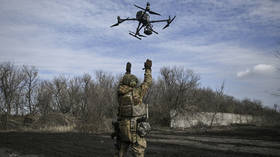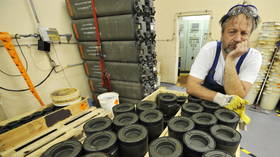Ukraine asks US for cluster munitions – Reuters

Ukraine has doubled down on its requests for controversial cluster munitions with which it wants to use in targeting Russian troops from drones, Reuters reported on Monday, citing US lawmakers. The weapons are banned in more than 100 countries due to the high risk they present to civilian populations, but not in Russia, Ukraine or the US.
According to US Representatives Jason Crow and Adam Smith, who sit on the House Armed Services Committee, Kiev has urged Congress to press President Joe Biden’s administration to approve the deliveries.
The US is barred from exporting such weapons by law, and there are no indications that the White House would support the move.
Ukraine is in particular seeking MK-20 cluster bombs which could be dropped from drones, in addition to 155mm artillery cluster shells Kiev had already requested, the lawmakers told the agency. They said the request came at last month’s Munich Security Conference.
MK-20 cluster munitions are delivered by aircraft and release more than 240 submunitions mid-air. According to Smith, the Ukrainian military believes such weapons “have better armor-piercing capability” than assets it has used before.
Cluster munitions are considered controversial as they are capable of dispersing a large number of bomblets over wide areas, lying dormant until disturbed. The 2008 Convention on Cluster Munitions (CCM) which banned the weapons is signed by more than a hundred countries but it hasn't been adopted universally.
Ukraine has been asking the US for cluster munitions to fight Russia at least since last autumn, according to Foreign Policy magazine. However, Washington has been reluctant to indulge the requests, with National Security Council spokesman John Kirby saying in December that “according to our own policy, we have concerns about the use of those kinds of munitions.”
There have been multiple reports of Kiev’s use of Soviet cluster weapons in residential areas, both before and after Moscow sent its troops into the country. Most notably last March, when a Tochka-U missile with a cluster payload killed more than 20 people and injured dozens of others in Donetsk. Kiev denied responsibility for the attack. Human Rights Watch said in May it could not verify the events.













